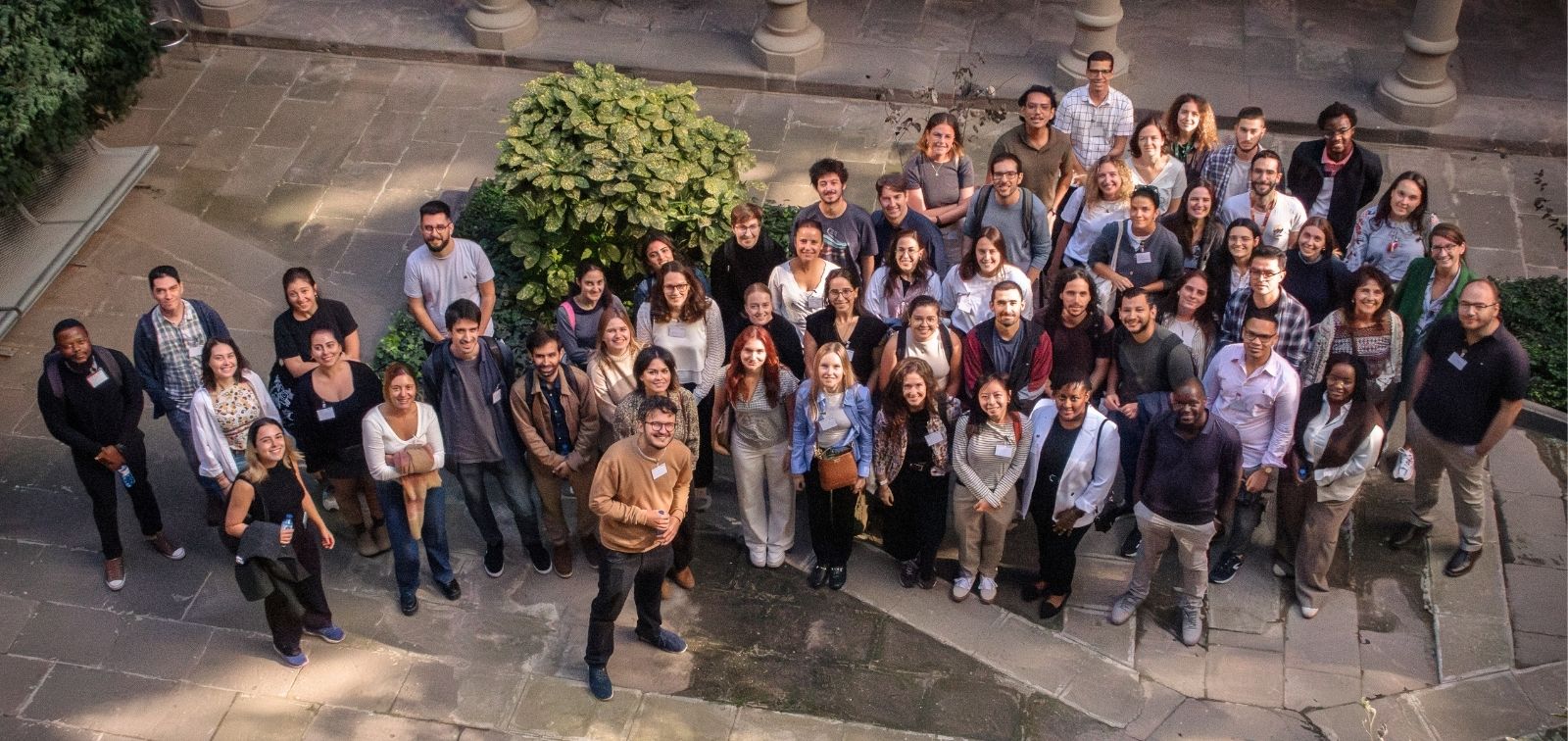Debate on Decoloniality in Global Health Takes Centre Stage at 10th ISGlobal Doctoral Symposium
The 5th Postdoctoral Symposium was held a few days later, with a round table on scientific careers and an illustration workshop
29.10.2024
Global health has some of its foundations in colonialism —the historical process of occupation and exploitation of territories and populations by foreign countries— and although it has ended, it has left a deep-rooted cultural, social and power legacy. It’s what we know as coloniality. Global health, from research to academia, now faces the challenge of decoloniality. What this entails, how it should be done and who should be involved in the process were some of the questions that filled the air as 60 participants gathered for the 10th edition of the ISGlobal Doctoral Symposium on 10 October.
After a welcome message from Quique Bassat, Director General of ISGlobal, Otavio Ranzani, Assistant Research Professor at ISGlobal, and Natalie Tegama, researcher at the University of Oxford, opened a debate that was later followed by Jocelyne Shimin Sze, researcher at the Autonomous University of Barcelona, and Daniel Kwakye Nomah, Senior Scientist at Aetion. Ranzani pointed out that decoloniality is "a structural problem about which there is still little awareness" and reminded the doctoral students that ISGlobal has created a working group to address and promote this initiative.
Participation and de-marginalisation for more equitable global health
The four speakers, all with deep roots in Latin American, African or Southeast Asian countries, agreed on the need to recognise and accept existing practices or situations of coloniality in order to move forward. For example, the majority of global health funding remains in the hands of high-income countries, as do leadership, authorship and meetings. The point, however, is not that any region should return to square one by foregoing any progress, but to understand the impact of colonial mentalities on science and to adopt specific strategies to avoid them.
The concept of 'parachute science' was also discussed, referring to foreign researchers who come to a low-income country or region, conduct studies, collect the data they need and then leave, leaving no lasting benefits or valuable knowledge for the area, and without involving local scientists as co-authors or giving them access to the results. Fairer global health is about increasing participation and de-marginalisation," said Natalie Tegama, referring to those who have been historically excluded from the equation.
During the conference, held in the Aula Magna of the University of Barcelona's Faculty of Medicine and Health Sciences, ISGlobal PhD students were able to learn first-hand about some of the studies being carried out, such as the impact of air pollutants on lung cancer, immune deviation in helminthiasis and malaria co-infections, and the presence of antibiotic-resistant bacteria in Barcelona's water.
Denise Naniche, scientific director of ISGlobal, reminded the participants that the most important skills they will learn "are not quantifiable, they are transversal, they will allow them to approach a problem and look at the world through different lenses", referring to creativity, collaboration and commitment to equity. She advocated for the optimism that drives science to move towards decoloniality.
Five years of Postdoc Symposium
Almost 40 ISGlobal postdocs held their annual meeting two weeks later. The 5th Postdoc Symposium provided an environment for sharing, co-creating, learning, discussing and thinking. After a warm welcome by Denise Naniche, they worked in small groups on the creation of a possible start-up, and 'Gut for you' was the most popular idea: the possibility of offering tailor-made biological treatments based on the analysis of our microbiota. This was followed by a workshop with illustrator Isa Loureiro, who showed them her work and talked about the process of artistic creation.
A round table with four well-known faces closed the event. Núria Casas and Maribel Casas, who made the leap to the private sector after their time at ISGlobal, and Lea Maitre and Luis Izquierdo, senior researchers at ISGlobal, shared moments from their professional careers, from the ups and downs they faced to their current work. They also stressed the importance of working with courageous people and in an environment that fosters collaboration, trust and family reconciliation. To succeed, their recipe is to keep an open mind, trust yourself, dare to step out of your comfort zone, and find something you are passionate about to never stop learning.



